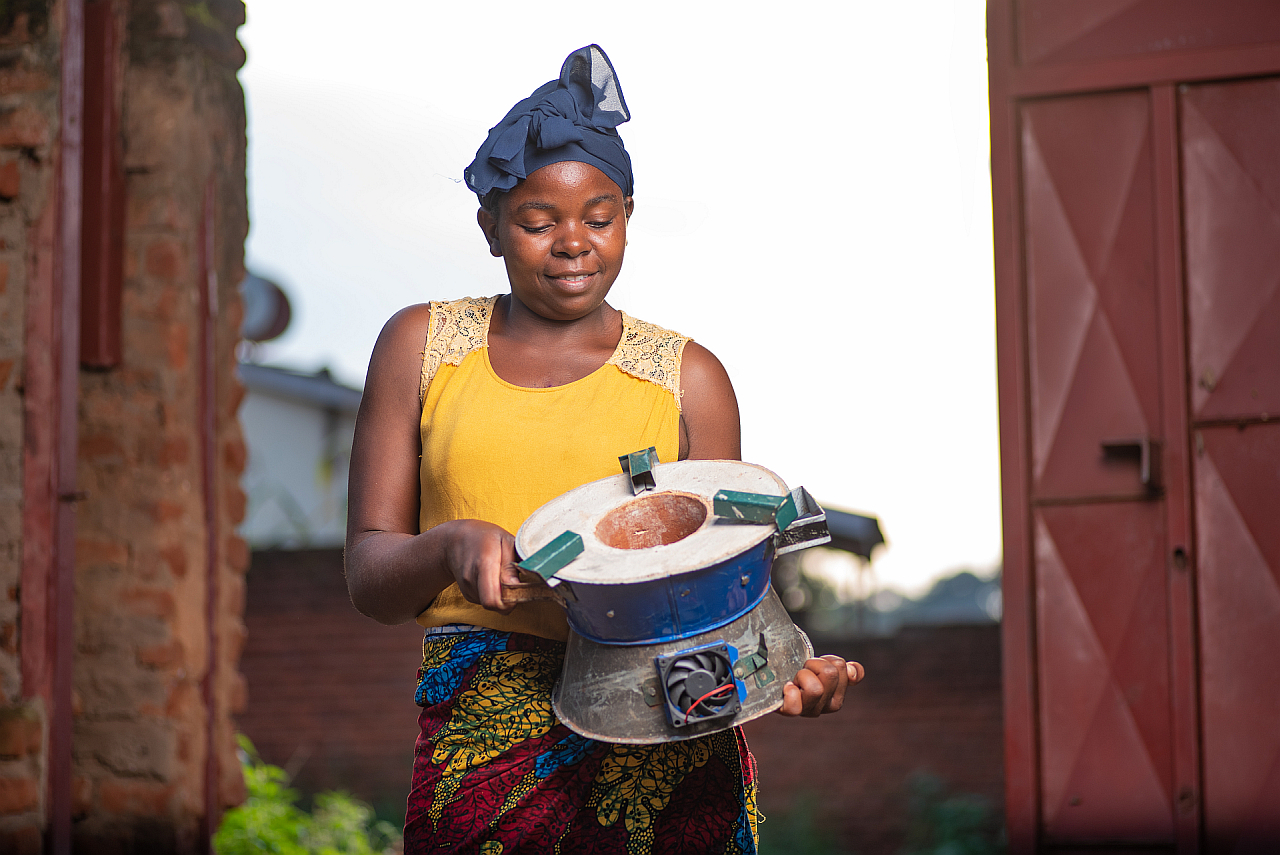- Home
- T1-1 PARTICIPANT LIST FOR ONE HEALTH MALAWI
- T2 ONE HEALTH MALAWI RESEARCH Papers
- T3 ONE HEALTH MALAWI Research Papers Environment
- T3 ONE HEALTH MALAWI Misc Research Papers Cookstoves Zipo
T3 ONE HEALTH MALAWI Misc Research Papers Cookstoves Zipo
T3 ONE HEALTH MALAWI Misc Research Papers Cookstoves Zipo
2022
- TITLE - Jiko to Zipo - A 100% Local Cooking Innovation Rising to Malawi's Deforestation Challenge
- AUTHOR - Will Coley, Boyce Wenzulo
- ABSTRACT - Deforestation in Malawi is about 33,000 hectares per year, mainly due to fuel use for cooking. Self Help Africa Malawi (ex United Purpose) conducted a "Monitoring Study, Cooking Test & Focus Group Discussion" exercise to get an in-depth understanding of the user experience of the Zipo FAST Cookstove. The Zipo FAST Cookstove uses high quality fuel made from factory/farm waste groundnut shells, that have been pelletised.
- CATEGORY - Miscellaneous
Presented at the National Energy Conference - 2022
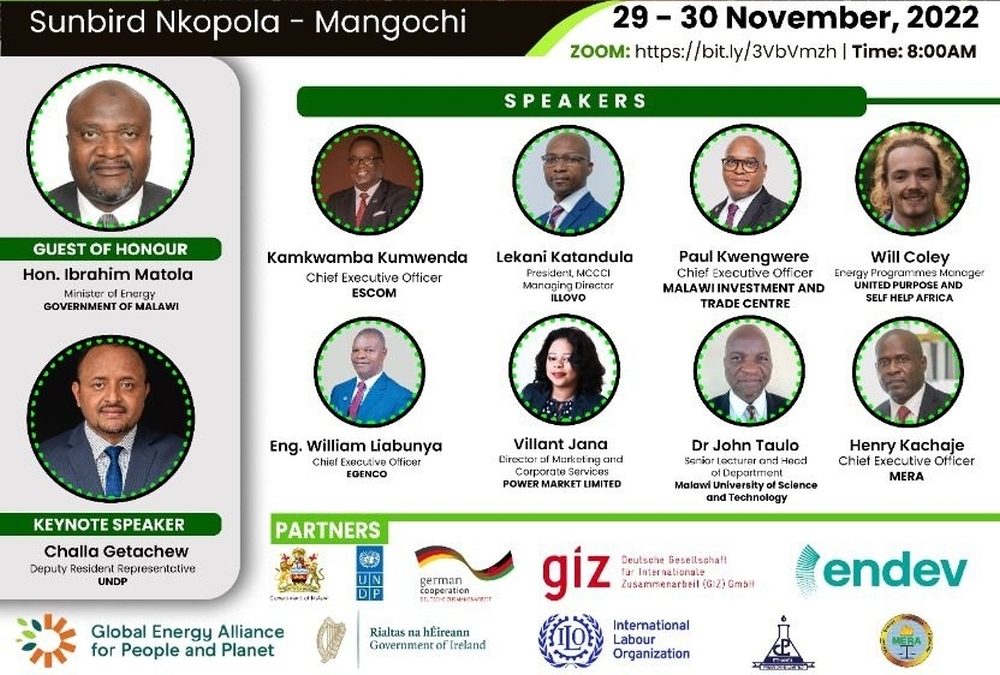
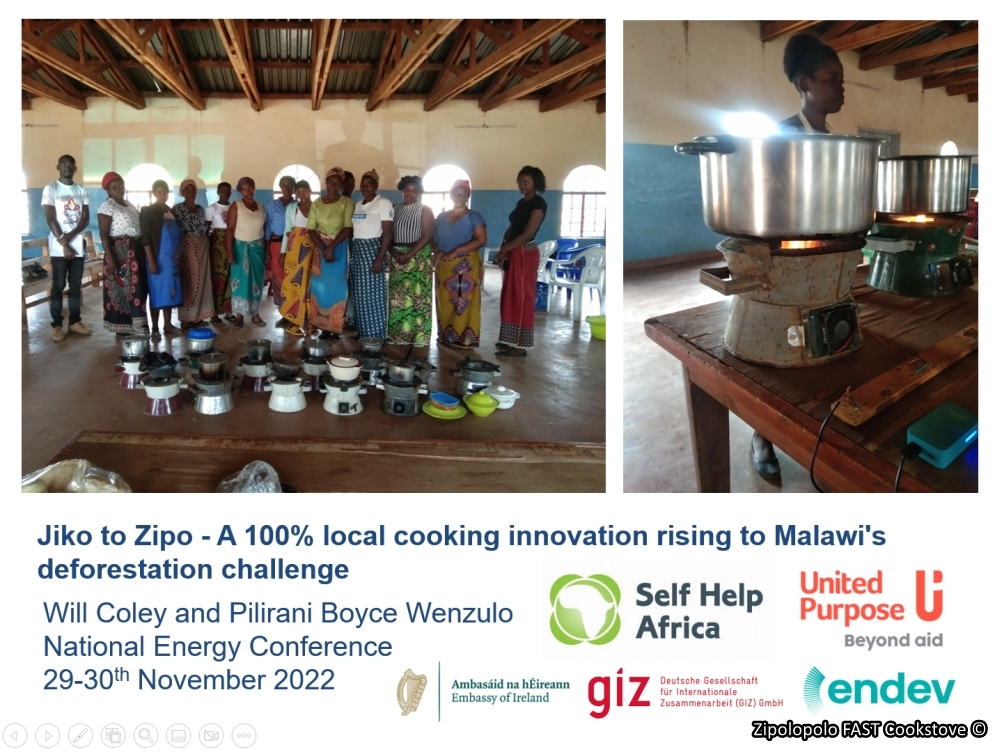
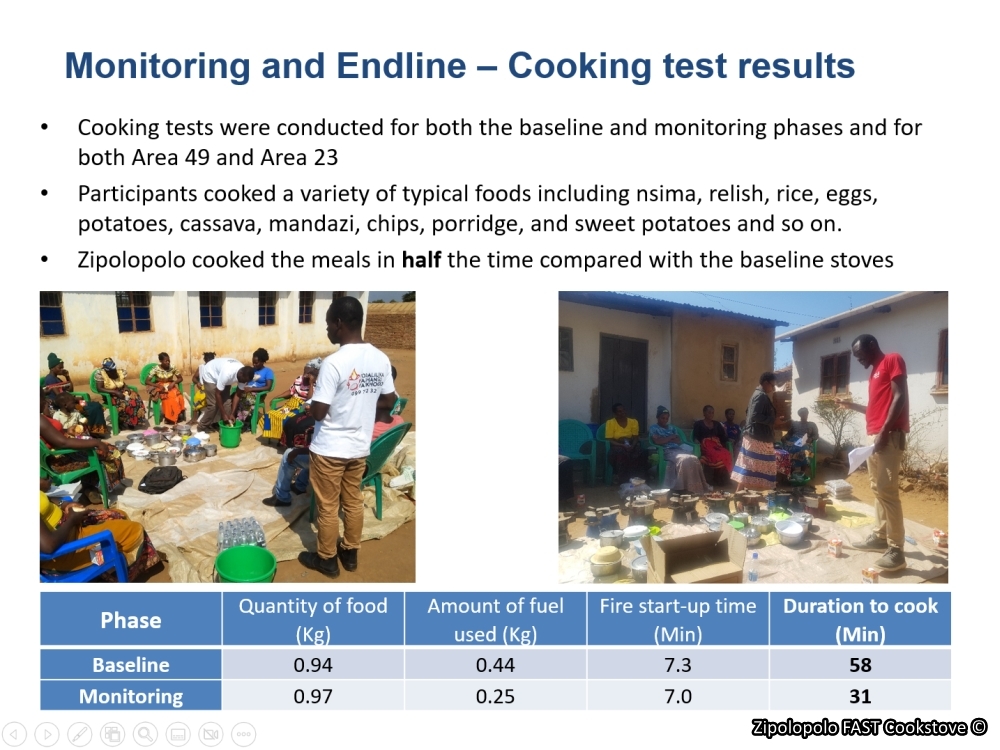
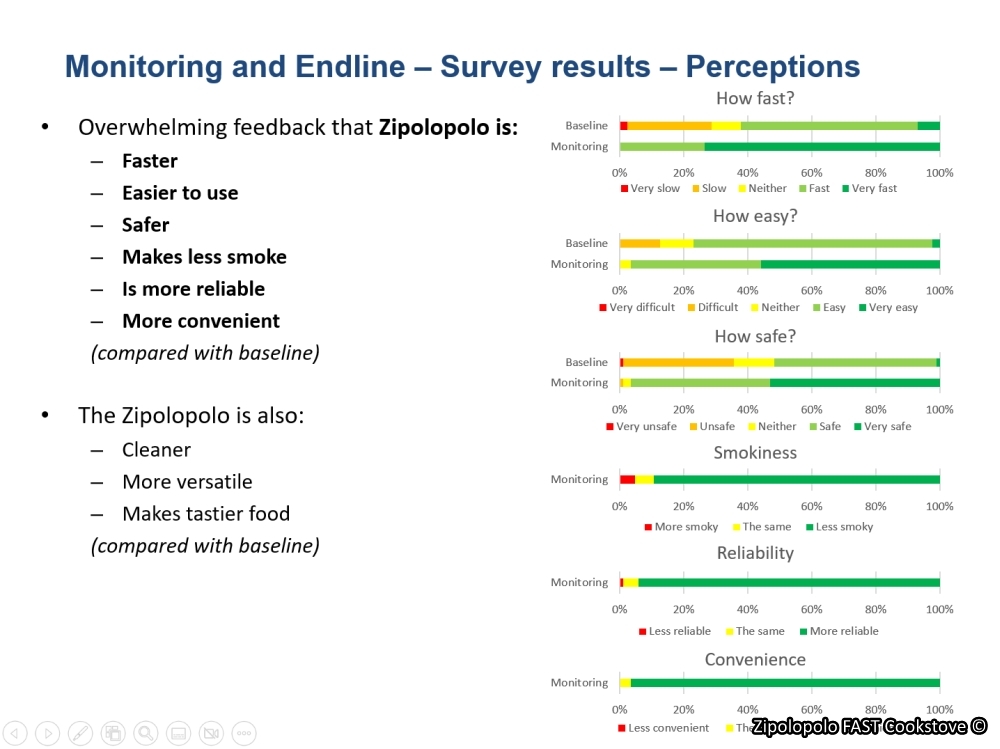
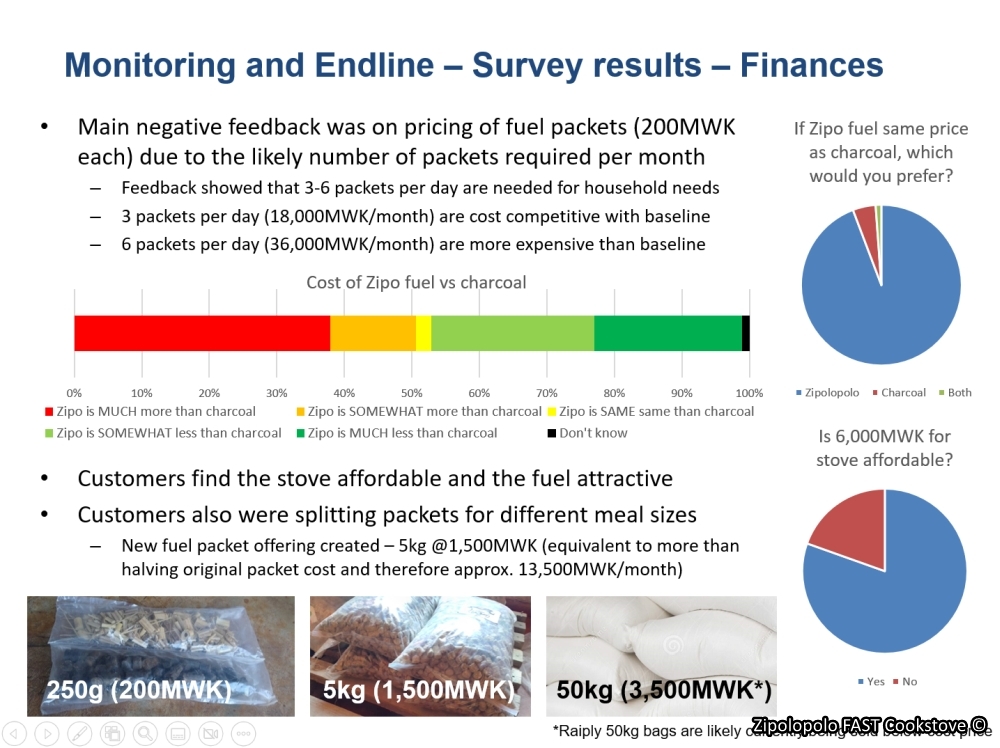
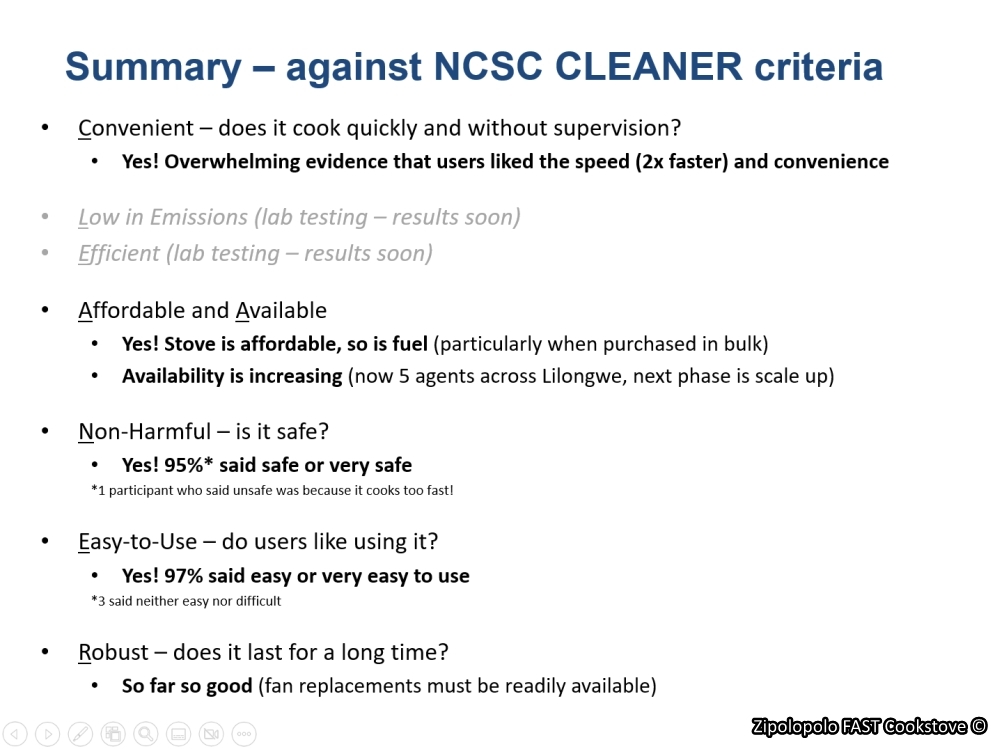
National Cookstove Steering Committee (NCSC)
Click here for lab test results.
Responses
Interview responses
- Mainly used Zipo stove because it is very fast, only used Charcoal stove when batteries are out of power
- Mainly used Zipo stove because it is very fast which has made the neighbors envious when they see me relaxed while they are always busy in the kitchen
- Mainly used Zipo stove because it is very fast, only challenge is the use of batteries is a bit expensive
- Used Zipo stove on daily basis, only used other stoves as alternative
- Zipo stove is very fast honestly, the challenges are very minor once you know how to use it
- Mainly used Zipo stove, unless there is no electricity or the batteries are flat. The stove is very good and very fast
- Mainly using Zipo stove because now they have more time to do other things since cooking will not take that long due to the stove
- Used both Charcoal stove & Zipo stove, I mainly use this stove while other family members use Charcoal stove as I fear they may damage my stove. It is very easy to use, even when I was sick I was able to use it while in my bed. Very grateful
- Mainly used Zipo stove because it has helped her to get more appreciation from the husband as food is normally ready in good time
- Only used Zipo stove during the past 3 weeks, even cooked beans on the stove
- Mainly used Zipo stove, it has really assisted in preparation for kids in the morning
- Mainly used Zipo stove which is very fast, and it has helped me prepare kids in time for school
- Mainly used Zipo stove, it feels like using an electric cooker. As a man it is easy to use as well as very fast
|
Advantages
|
Disadvantages
|
Real impact family stories
- The stove has highly affected the women, as they are normally responsible for cooking it has given them a lot of freedom and time because it has made cooking very easy. The stove has at least solved fuel problems that was being faced on daily basis
- The second group are men who have been also positively affected by the use of this stove, they have been relieved from the financial burden, and it has also brought happiness to them since the food is ready in time most of the times
- Girls are considered third on the list due to their involvement to cooking activities in the households, if ask them to go and set up the fire they prefer the Zipolopolo stove due to the cleanliness of the fuel compared to charcoal, but also it means early to finish cooking
- Boys and young children have benefited from the stove as well since meals are on time, also they are now going to school in good time
Real impact family stories concerning the environment
- The fact that we are no longer buying charcoal or wood fuel means someone failed to sale their charcoal which delayed them to go back and cut down another tree
- Zipolopolo stove has also taught us efficient use of fuel compared to the past where we were being very wasteful
- This stove is also helping us to save income that is being used to improve the livelihood of our families which in turn protects natural resources that would have been abused due to desperation e.g. illegal fuel business
The study was funded by
- Embassy of Ireland, Malawi
- GIZ Malawi
- EnDev Malawi
Zipo Presentation Using One Health and SDG's as Design Guidelines
Marcel Blankenstein - One Health Workshop, Oct 2023, Senga Bay
Marcel Blankenstein
- Permaculturist
A Little About Permaculture
- In 1911, Franklin Hiram King wrote Farmers of Forty Centuries: Or Permanent Agriculture in China, Korea and Japan, describing farming practices of East Asia designed for "permanent agriculture".
- In 1929, Joseph Russell Smith appended King's term as the subtitle for Tree Crops: A Permanent Agriculture, which he wrote in response to widespread deforestation, plow agriculture, and erosion in the eastern mountains and hill regions of the USA.
Today's presentation
- How One Health design can lead to effective outputs
- A case study of a simple mbaula / cookstove
Zipolopolo FAST Cookstove
- A locally invented cookstove using a One Health Approach
How does the Zipoolopolo (Zipo) cookstove align with Malawi's One Health goals?
- One Health is a global strategy recognising the interconnectedness of human, animal, and environmental health. It emphasises collaborative efforts across different sectors to achieve optimal health outcomes.
Malawi's One Health goals align with the concept of Zipo's sustainable cookstove and fuel in several ways:
Zipo Reduces Deforestation (Environmental Health)
- Reduces deforestation since there's less reliance on firewood and charcoal for cooking. This contributes to the One Health goal of preserving ecosystems and biodiversity.
Zipo Improves Human Health (Human Health)
- Traditional cooking methods in Malawi (over 90% of Malawi's 5 million households) involve burning biomass fuels like firewood and charcoal, which emit harmful smoke leading to indoor air pollution. Switching to an improved (ICS) and sustainable cookstove and fuel reduces respiratory and other health issues, aligning with the One Health goal of improving public health.
Zipo Lowers Greenhouse Emissions (Environmental Health)
- Zipo’s sustainable fuel for cooking significantly reduces the emission of greenhouse gases, which contributes to climate change — a major environmental risk to health. Therefore, this aligns with One Health's focus on maintaining environmental health.
Zipo Promotes Social Equality (Human Health)
- Zipo saves time and funds for families who would otherwise spend significant time collecting firewood or money purchasing charcoal. This particularly empowers women and girls, who are often responsible for gathering firewood. By improving social conditions, this promotes the One Health goal of overall societal well-being.
Zipo Enhances Animal Health (Animal Health)
- The preservation of forests through using Zipo indirectly promotes animal health. Habitats are preserved, reducing the threat to species and decreasing the likelihood of zoonotic disease transmission.
Zipo’s sustainable cookstove and fuel connects environmental sustainability, human health, social equality, and animal health, reflecting the integrated, multi-sectoral approach endorsed by the One Health model.
Why should Zipo only stop at One Health?
Because the concept of "One Health" posits that the health of people is connected to the health of animals and the environment, in Malawi, this approach has multiple linkages to the country's Sustainable Development Goals (SDGs) as set out by the United Nations.
Zipo links to the following SDG's:
- SDG 1 - No Poverty: By ensuring the health of livestock through the One Health approach, Malawians are more likely to have a reliable source of income, food, and livelihood, thus reducing poverty.
- SDG 2 - Zero Hunger: By preventing diseases that can affect animals and crops, the One Health approach contributes to food security in Malawi.
- SDG 3 - Good Health and Well-being: The One Health approach can help address zoonotic diseases, food safety issues, and antimicrobial resistance, contributing to overall human health and well-being.
- SDG 6 - Clean Water and Sanitation: By promoting the health of the environment, the One Health approach aids in maintaining and improving water and sanitation systems in Malawi.
- SDG 13 - Climate Action: The One Health approach recognizes the impact of climate change on the health of humans, animals, and the environment. By addressing these interconnected impacts, One Health contributes to climate action efforts.
- SDG 15 - Life on Land: By addressing the health of all living beings, the One Health approach contributes to biodiversity and the preservation of ecosystems.
Thus, Zipo's One Health approach in Malawi contributes towards achieving multiple SDGs simultaneously. It recognizes the need for holistic and interconnected actions to promote sustainable development.
For a nation like Malawi, which is highly dependent on its agricultural sector and susceptible to climate change, the application of Zipo's One Health approach is crucial for sustainable development.
How does Zipo’s One Health and SDG approach translate into actions?
Goal 1: No Poverty
- Income Generation - Zipo cookstoves are produced and sold locally, creating employment opportunities and income for the community members.
Goal 2: Zero Hunger
- Efficient Cooking - Zipo cookstoves improve the efficiency of cooking, reducing the amount of fuel needed. This leads to a reduction in the time spent on cooking, allowing families to focus on other activities, including food production.
Goal 3: Good Health and Well-being
- Reduced Indoor Air Pollution - Zipo cookstoves produce less indoor air pollution compared to traditional stoves. This helps in reducing respiratory illnesses and improving overall health.
Goal 4: Quality Education
- Time Savings - When families spend less time on cooking due to the efficiency of Zipo cookstoves, children may have more time available for education and other activities.
Goal 5: Gender Equality
- Empowering Women - Traditional cooking methods often fall on women, and they can spend a significant portion of their day collecting fuel. Zipo cookstoves reduce this burden, giving women more time for education, work, or other activities.
Goal 7: Affordable and Clean Energy
- Reduced Fuel Consumption - Due to its efficiency, Zipo cookstoves significantly reduce the amount of fuel needed for cooking. This can lead to cost savings for households, making energy more affordable.
Goal 10: Reduced Inequality
- Access to Clean Cooking - Providing Zipo cookstoves to communities that traditionally rely on inefficient and polluting stoves helps in reducing inequalities in health, time use, and access to clean energy.
Goal 13: Climate Action
- Reduced Greenhouse Gas Emissions - Zipo cookstoves, which uses a renewable fuel, emits fewer greenhouse gases compared to traditional stoves. This helps mitigate climate change.
Goal 15: Life on Land
- Preservation of Natural Resources - Zipo cookstoves promote the use of renewable biomass fuels and reduce deforestation, helping to protect local ecosystems.
Goal 17: Partnerships for the Goals
- Collaboration and Innovation - Developing and promoting Zipo requires collaboration between governments, NGOs, private sector, and communities. This fosters innovation and partnerships.
In Summary
- By using a One Health approach, not only does Zipo align with several of Malawi's SDG goals by improving health, reducing poverty, empowering women, conserving natural resources, and contributing to climate action, but it also ensures that products are better designed.
- All this, combined, has positive impacts on various aspects of a community's well-being, relationships with animals, and the environment.
Tests by Accredited Laboratories
CERER Senegal
- (Centre d'Etudes et de Recherches sur les Energies Renouvelables / Center for Studies and Research on Renewable Energy)
KIRDI Kenya
- (Kenya Industrial Research and Development Institute)
|
ISO 19867 (Global Cookstove Standard) Thermal Efficiency Cooking Power (Watts) CO (Carbon Monoxide) PM (Particulate Matter) Safety |
Zipo Rating 4 Average (C + K) 1,097 Average (C + K) 5 Highest (C) 3 Highest (K) 4 Average (C + K) |
Max Rating 5 NA 5 5 5 |
- C = CERER Senegal 2023
- K = KIRDI Kenya 2022
